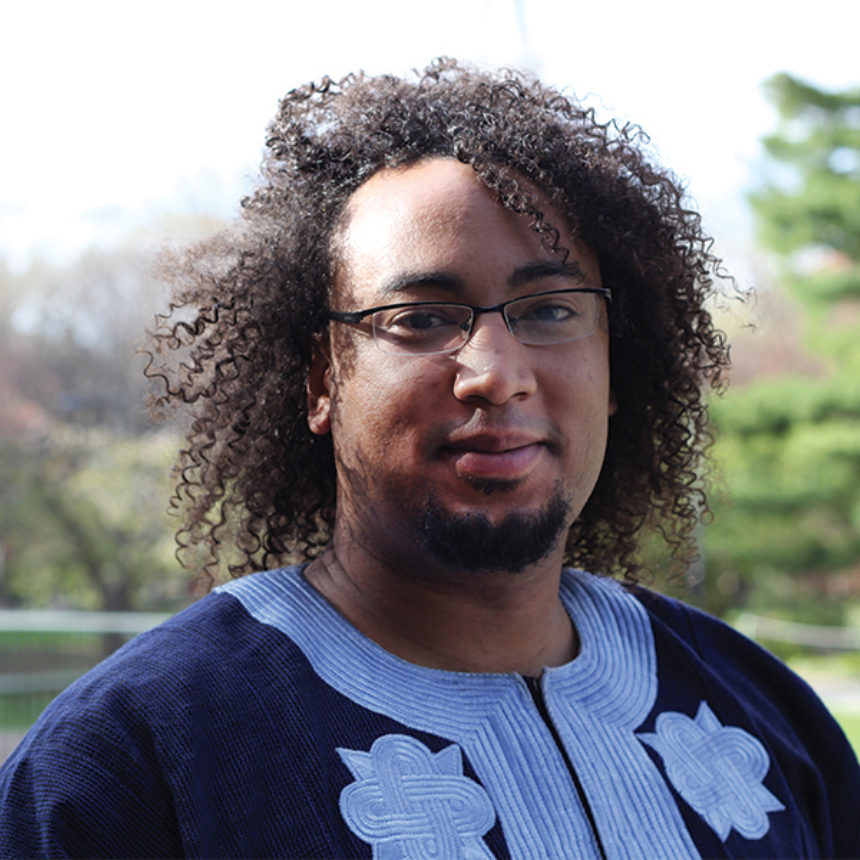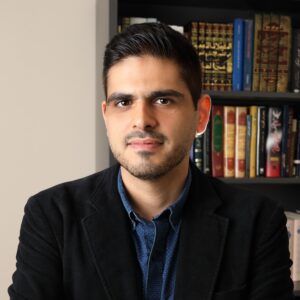About
Welcome to the official website of the “Logic of the Birds” podcast series, a project made possible through the support of the Templeton Religion Trust.
About the Project
Why is poetry so powerful? Is there something unique about the kind of knowledge that poetry can cultivate and communicate? If so, how is this accomplished? What is the role of poetry’s beauty and form in working what the Islamic tradition calls its “licit magic”? And why are so many poets mystics of one sort or another? What is the relationship between poetry and spirituality?
Join us as we engage in enlightening conversations with eminent scholars and poets from around the world to explore these and other questions. Focusing on Sufi poetry, this podcast series will explore some of the great poets and poems in Arabic, Persian, Turkish, Urdu, Wolof, Hausa, Swahili, Panjabi, Malay, and more. Our conversations will examine how these traditions cultivated perspectives and popular literary traditions that wedded the sensual and intellectual, the aesthetic and the ethical, the affective and rational, the logical and the spiritual, the philosophical and mystical.
We hope you will enjoy our explorations on what one Sufi poet has called “the ship of poetry,” to see what new vistas and perspectives these traditions of poetry can open up for us, and how this can transform our understanding of ourselves, our world, and even “understanding” itself.
About the Team

Oludamini Ogunnaike - Project Director
Oludamini Ogunnaike is an Associate Professor of African Religious Thought at the University of Virginia. He specializes in the aesthetic and intellectual traditions of West Africa, particularly Sufism and Ifá. He is the author of Deep Knowledge: Ways of Knowing in Sufism and Ifa, Two West African Intellectual Traditions (Penn State University Press, 2020), winner of the Outstanding First Book Prize of the Association for the Study of the Worldwide African Diaspora (ASWAD), Poetry in Praise of Prophetic Perfection: West African Madīḥ Poetry and its Precedents (Islamic Texts Society, 2020), and The Book of Clouds (Fons Vitae, 2024).

Ilma Qureshi - Program Manager
As a Fulbright scholar, Ilma received her Masters in 2017 and is currently a doctoral candidate in the Department of Religious Studies at the University of Virginia. Broadly interested in the Islamicate literary and intellectual tradition(s), Ilma focuses on pre-modern Persianate tradition more specifically. Her dissertation, “Poetry as a vessel and a way of knowing: the texture, poetics, and taste of poetry in Amīr Khusraw and Fakhr al-dīn ‘Irāqī’s work” explores how both of these thinkers centered poetry as a conduit and a mode of knowing. Her next book project explores the lived tradition of Qawwālī in postcolonial Pakistan and what ‘affect’ the received form of Qawwālī– lyrical verse and music–has on the self. Ilma is a poet and a fiction writer as well and her work has appeared in various literary journals such as The Black Fork Review, The Road Runner Review, Tafheem, and Tarīkh-i adab-i Urdu, amongst others.

Shankar Nair
Shankar Nair is an Associate Professor in the Department of Religious Studies and the Department of Middle Eastern & South Asian Languages & Cultures at the University of Virginia. His research interests include Sufism and Islamic philosophy, Qur'anic exegesis, Hindu philosophy and theology, Muslim-Hindu interactions, and South Asian and Islamic literatures, particularly in the Arabic, Persian, and Sanskrit languages. He is the author of Translating Wisdom: Hindu-Muslim Intellectual Interactions in Early Modern South Asia (University of California Press, 2020).

Cyrus Ali Zargar
Cyrus Ali Zargar is the Al-Ghazali Distinguished Professor and Professor of Islamic Studies at the University of Central Florida. Zargar’s research interests focus on Sufi literature in Arabic and Persian, as well as the metaphysical, aesthetic, and ethical intersections between Sufism and Islamic philosophy. His first book, Sufi Aesthetics: Beauty, Love, and the Human Form in Ibn ʿArabi and ʿIraqi, was published in 2011 by the University of South Carolina Press. His most recent book, The Polished Mirror: Storytelling and the Pursuit of Virtue in Islamic Philosophy and Sufism, was published in 2017 by Oneworld Press. His forthcoming book concerns Sufi ethics and the theme of self-transformation in the works of the Persian poet ʿAṭṭār. He has also published in the Journal of the American Academy of Religion, Iranian Studies, The Muslim World, and the Journal of Religion & Film, among other venues.

Nariman Aavani
Nariman Aavani is a Postdoctoral Fellow at the University of Chicago Divinity School. His research focuses on Islamic philosophy and Sufism in Iran and the Indian subcontinent from the 13th century to the early 1800s. Specifically, his work examines the historical and philosophical dynamics of Hindu-Muslim relations, both in the Mughal period and across different regions. His first book, Hindu Engagement with Rumi’s Mathnawi in Mughal India, explores the literary contributions of two Hindu poets, Banwālīdās (d. 1666) and Bhūpat Rāy Bīgham (d. 1720), who composed poetry in the Persian mathnawī style emulating the Mathnawī of the celebrated Sufi, Jalāl al-Dīn Rūmī (d. 1273). By merging elements from both cultures, these poets created a shared literary space that facilitated Hindu-Muslim dialogue and coexistence in the Mughal period. His second book project explores Hindu-Muslim cross-cultural philosophy of religion, focusing on the writings of two 17th-century philosophers: Mullā Ṣadrā (d.1635) and Gadādhara Bhaṭṭācārya (d. 1660). The project aims to investigate the sources of normativity in their respective accounts of the ultimate end of human life.

Nicholas Boylston
Nicholas Boylston is an Assistant Professor of Near Eastern Languages and Civilizations at Harvard University. A scholar of classical Persian literature and Persianate Islam, his research focuses on themes of diversity and unity in the writings of Sufis, philosophers and litterateurs from the Persianate world. He is currently completing a book on the flourishing of perspectivist and pluralistic modes of thought during the final stage of the formative phase of classical Persian literature. He received his BA from Harvard College, his MA from the University of Tehran, and his PhD from Georgetown University (2017). He was previously College Fellow and Lecturer at Harvard (2018-21) and Assistant Professor at Seattle University (2021-3).

Arjun Nair
Arjun Nair is an Assistant Professor of Religion at the University of Southern California. He is a historian of religion and scholar of post-classical Sufi-philosophical texts and traditions. His research deals primarily with commentaries and other theoretical works that discuss the interpretation of literary works (lyrical poetry in Arabic and Persian) and scripture (Qur’an) as well as the knowledge practices that theorists envisioned around them. His first book, Transcending Mysticism, shows how the writings of Sufi theorists can assist scholars of religion and Sufism move past many of the limits that labels of “mysticism” and its synonyms continue to exert on scholarship. He has published in the Journal of Islamic Studies, the Journal of Sufi Studies, and the Journal of the Muhyiddin Ibn ʿArabi Society.

Jane Mikkelson
Jane Mikkelson is a Lecturer and Associate Research Scholar at Yale University (Near Eastern Languages and Civilizations, and Comparative Literature). Her research focuses on premodern literary and intellectual cultures of Islamicate South Asia and the Near East, with a particular interest in classical Persian, Indo-Persian, and Urdu literatures, theories of poetry, intersections of literature and philosophy, and comparative early modernities. In recent publications, she discusses representations of fugitive experience in early modern Persian poetry; a geopolitical turn in Persian literary criticism; canonicity and innovation in Safavid and Mughal literary traditions; and the ambient availability of Avicenna’s philosophy for Persian poets.